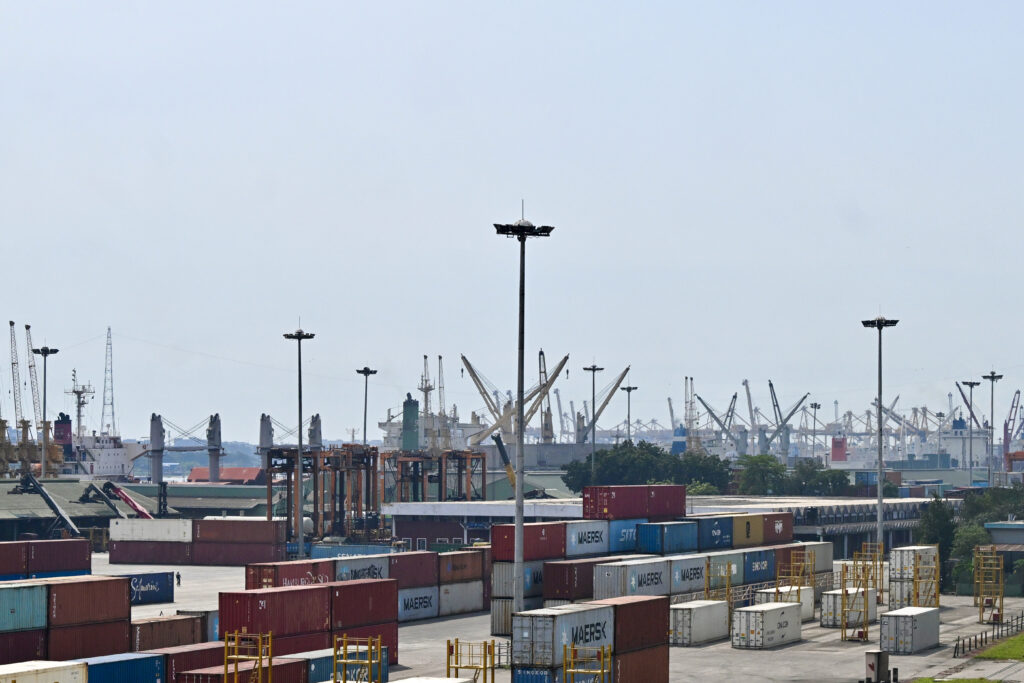AFP Asia Business
Iranian tech prodigies battle it out with robots
Two machines resembling robotic vacuum cleaners sped around a ring colliding, shooting sparks and catching fire, as Iranian engineering students watched from behind plexiglass.The dramatic clash was just one of many opportunities for competitors to go head-to-head at the country’s Tech Olympics, to determine the future of its engineering talents. Iran aspires to become a key regional player in emerging technologies, despite decades of international sanctions that have stifled its development.The fields at this year’s competition included robot battles, programming, artificial intelligence, as well as drones, cybersecurity and connected devices.A few hours before his event, Alireza Hosseini put the final touches on combat robot Arash — a rudimentary machine of wires and wheels without the appearance of a humanoid. “What’s more important than the design is the operator,” the 21-year-old university student told AFP, referring to the person who remotely controls the robot.”The design only represents a third of the work, but the operator decides how and where the robot attacks,” said Hosseini, from Kerman in southern Iran.Hosseini said his team of students in electrical engineering, electronics, computer science, mechanical engineering and design had been crowned Iran’s robotics champion three times.Launched last year at the government’s initiative, the Tech Olympics serve as a talent pool for companies seeking potential recruits.The coach of one team of under-18s appeared somewhat anxious before the start of the competition.”Unfortunately, we started late, and the robot isn’t quite ready yet,” said Mr. Azizi, who did not give his first name. – Iran’s Silicon Valley -Three referees were tasked with judging the robot fights, just like in wrestling, a sport at which Iran excels. The collisions between machines produce sparks, and sometimes even balls of fire. Victory goes to the robot that disables its opponent.The Tech Olympics take place on the outskirts of the capital Tehran, at the Pardis Technology Park — nicknamed Iran’s Silicon Valley — where dozens of cutting-edge companies are located.The organisers boast that they received more than 10,000 applications for the competition, which was whittled down to 1,000 spots in the elimination rounds. A few foreign teams also participated. Iranian media mentioned more than a dozen countries ranging from neighbouring Iraq to far-away Romania. Iran has invested sizable sums in emerging technologies, including robotics, with dozens of companies using them for a variety of applications.In September, the country unveiled its first AI-powered robot, capable of accurately answering a wide range of legal questions, according to local media.The military has also harnessed these technologies, including for its Aria combat robot, which uses AI to detect obstacles and move autonomously and was unveiled in September. In 2021, veterinarians in Iran performed the first-ever remote surgery on a dog using Sina, a surgical robot entirely designed and manufactured domestically.The Tech Olympics aims to prepare students for real-world situations. Mohammad-Javad Asadolahi, a 21-year-old studying mechanical engineering at university, said he and his classmates designed a drone — capable of taking off automatically and following a set trajectory — from scratch using “60 to 70 percent Iranian technology”. “Our main difficulty was the lack of educational resources” in English and Persian, he said.But “thanks to our knowledge and research, we have gradually succeeded”.
Bangladesh dockers strike over foreign takeover of key port
Bangladesh’s dock workers escalated a strike on Saturday at the country’s biggest port, Chattogram, protesting plans by the interim government to lease operating licences to a foreign company.The walkout, which began in small numbers in October, has now grown to around 200 workers at the port — Bangladesh’s main trade gateway and a vital hub in the global garment supply chain.”Foreign expert operators would increase the foreign investment and enhance the efficiency,” Chattogram Port Authority chairman S. M. Moniruzzaman told AFP.Bangladesh, the world’s second-largest garment exporter, relies heavily on Chattogram port — formerly known as Chittagong and strategically located on the Bay of Bengal — for most of its imports and exports.According to state-run news agency BSS, UAE-based DP World has expressed interest in operating the port’s New Mooring Container Terminal, and Danish shipping giant A.P. Moller–Maersk in the Laldia Container Terminal on the city’s outskirts.In October, Mohammed Yousuf, senior secretary at the Ministry of Shipping, said that “agreements are expected to be signed by December” with Bangladesh’s interim administration.The interim administration, which took over after the government of Sheikh Hasina was toppled in a mass uprising in August 2024, will be replaced after elections in February.The port move has sparked anger among some.”We don’t know if the new authority will hire us or restructure the entire system,” striking docker Nur Uddin, 55, told AFP on Saturday. “Do they even have the mandate? They are an interim government,” said Iliyas Bhuiyan, 56, another dockworker.But supporters say foreign expertise could modernise operations.”We need a globally reputed operator to increase the port’s capacity,” said Kabir Ahmed, president of the Bangladesh Freight Forwarders Association (BAFFA).”It will enhance cargo handling, boost revenue, and strengthen the country’s reputation.”But critics argue that leasing the facilities undermines control.”It makes no sense to lease the terminals that we developed and have been operating for the past 40 years,” said Azam J. Chowdhury, chairman of the Bangladesh Ocean Going Ship Owners’ Association (BOGSOA).


